
Is coffee culture of Indonesia’s capital Jakarta becoming one of world’s best?
Jakarta’s notoriously congested roads could actually be helping the city nurture its own unique coffee culture. We look at three coffee sellers – from online deliverers to Starbucks – whose business models thrive on the chaos
As Indonesian President Joko Widodo began preparations for the nation’s Independence Day celebrations in Jakarta on August 17, he told local media he would welcome international guests with a selection of local coffees.
Meanwhile, there is a growing movement to redefine how Indonesian coffee is consumed. Indonesians are not traditionally big coffee drinkers – despite the nation being a big exporter of coffee beans – but things are beginning to change.
Hong Kong 3D latte artist takes milk foam to the next level
At dusk on a recent Wednesday night, the Kopi Mank cafe on Jalan Raya Pasar Minggu – a south Jakarta street notorious for its 24-hour traffic jams – starts to fill up with the after-work crowd. Everyone seems to understand that the plain-looking, unpretentious storefront is the entrance to a safe haven where they can wait out the midweek rush hour.
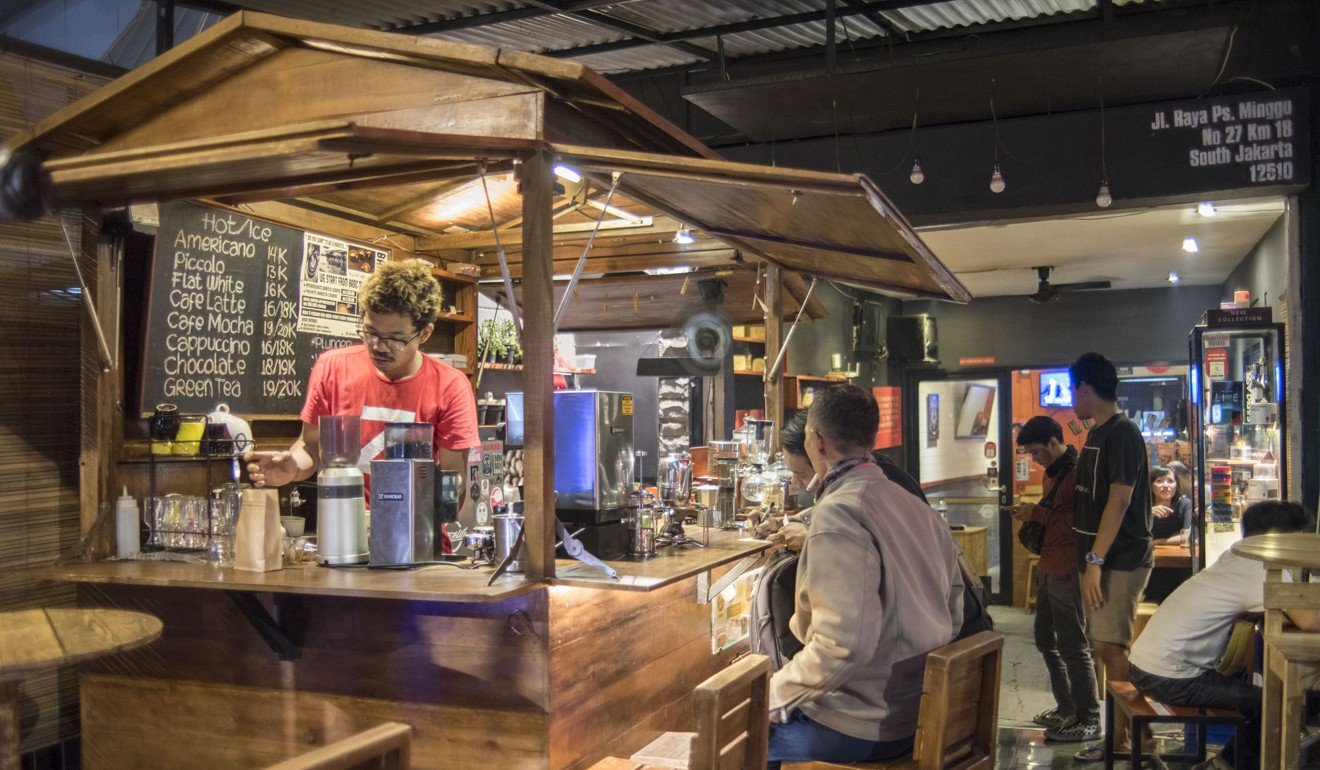
It might be a long way from the outdoor cafes of Paris and cobble-stoned alleyways of Melbourne, but as the sun goes down, the endless hooting of car horns is drowned out by the sounds of an espresso machine and groups of friends chatting over green tea lattes and Americanos.
“Mankers – that’s what we call Kopi Mank customers – are a mix of people,” says Indra Dipura, one of the cafe’s three founders. “[There are] lots of students, groups of friends and nearby office workers waiting to go home.”
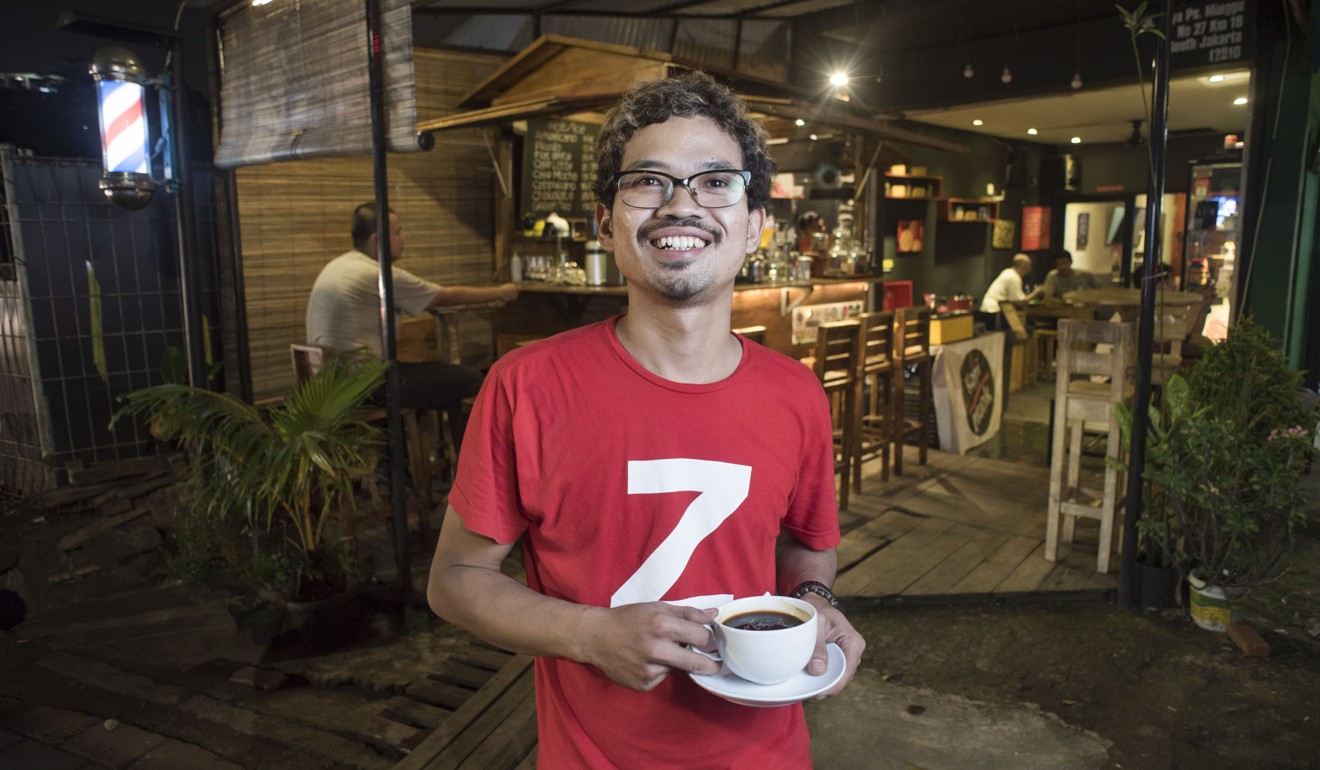
Dipura, with co-founders Joshua Ramos and Nardi Panjaitan, hope the cafe will become a hub for the capital’s coffee revolution. At Kopi Mank, visitors won’t find the Instagrammable faux marble tables and exposed fixtures of many of the city’s other carbon copy cafes. Instead, the founders say, a focus on substance over style elevates the beans, sourced from farmers and artisan cultivators from across the archipelago.
“We are Indonesian and we get a lot of support from our country, and we want to be able to give that back,” Dipura says. “That’s why we source our beans from local growers.”
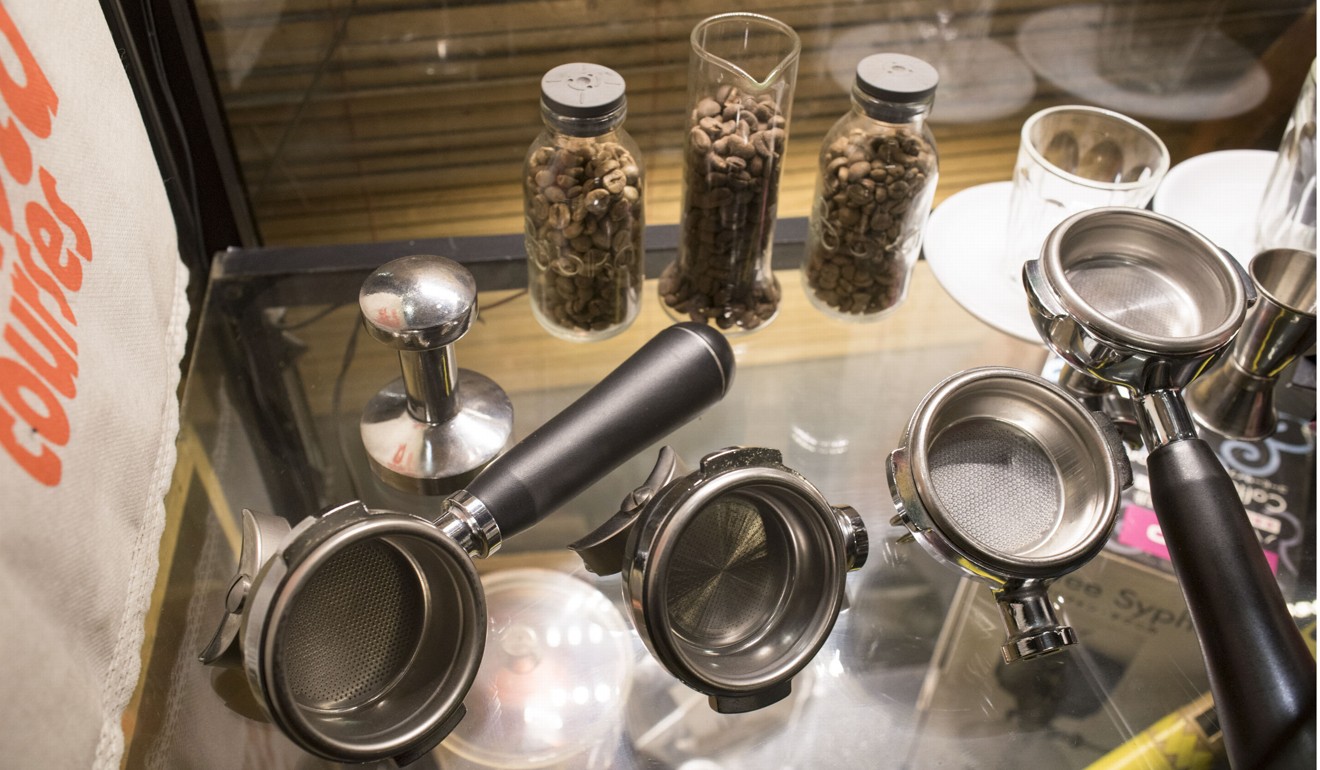
The cafe also targets cost-conscious coffee lovers. For many Indonesians – who can get an instant coffee from a convenience store or roadside stall for less than US$1 – the 40,000 rupiah (US$3) cups of coffee found at some cafes are an unnecessary expense. Kopi Mank has an extensive menu of coffees that are largely under 20,000 rupiah, covering a variety of traditional coffee techniques from across Southeast Asia and popular trendy drinks from the rest of the world.
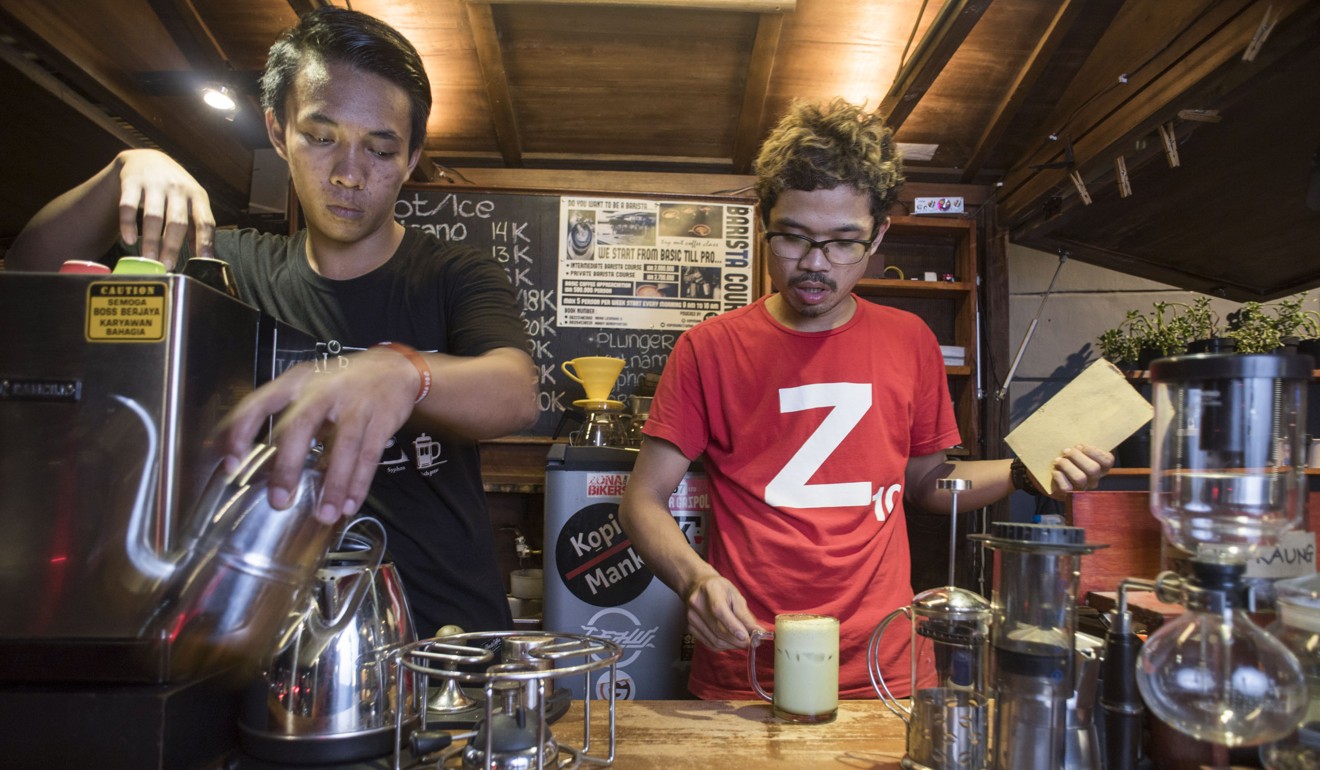
Across town in North Jakarta, Kopi Papi Tommy has devised its own approach to targeting the city’s coffee lovers that takes the traffic jams into account. Rather than customers coming to them, Kopi Papi Tommy goes to the customer.
With online delivery expanding, we feel that in the future it will be the market leader
The shop offers a range of standard iced coffees, including Americanos, lattes and flat whites, as well as local favourites such as teh tarik (literally “pulled tea”) and green tea matcha. Initially launched at stalls in pop-up markets and bazaars in Jakarta’s high-end malls, the business model has adapted quickly to the specific needs of Jakarta’s customer base: direct orders through the city’s booming online motorcycle taxi delivery services are growing fast, bringing fresh cold drinks to customers directly.
“When we launched Kopi Papi Tommy, we started to sell from bazaar to bazaar, and the demand was very high,” says founder Tiffany Octaviana. “But as the price of the bazaars continued increasing, we could not afford to open [more] stands. We started to look for a partner so we could [continue to] sell our products at an affordable price … and most importantly, so we could sell our ‘coffee to go’ for customers as soon as ordered.”
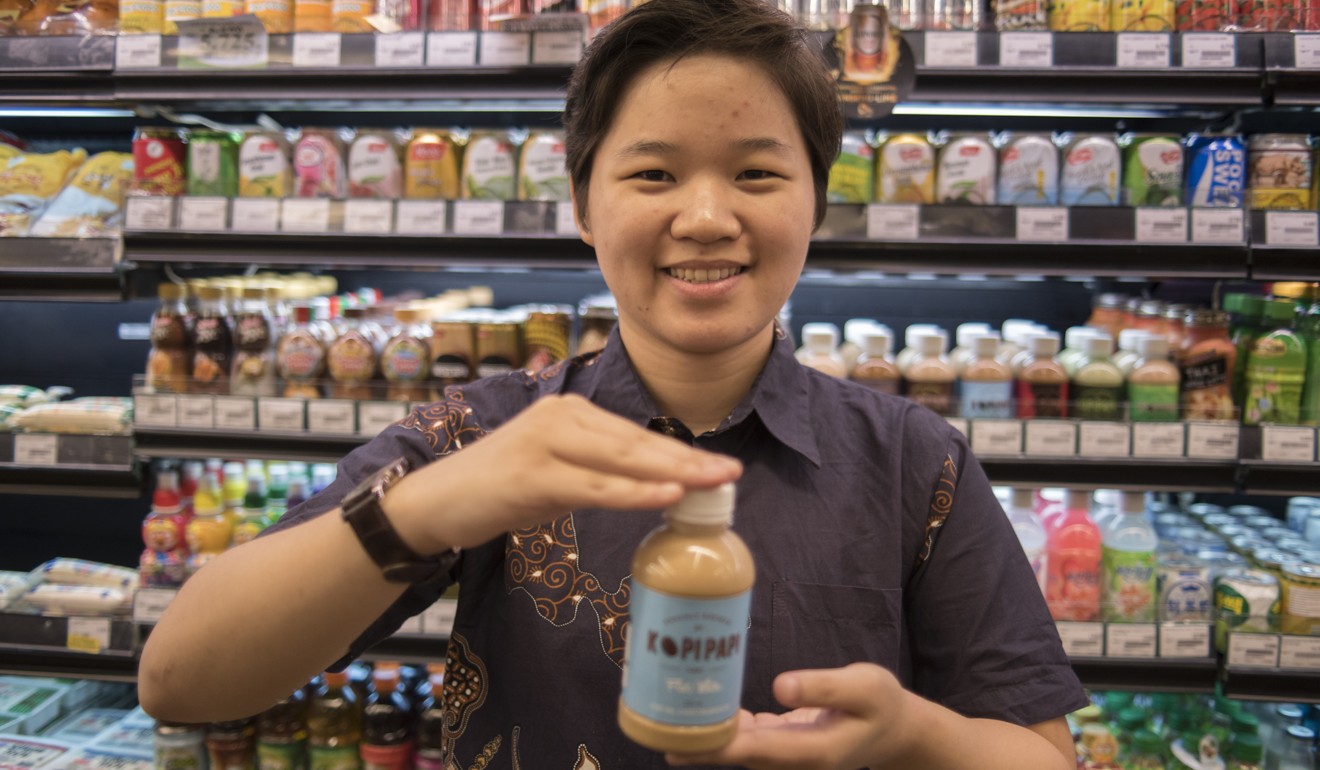
That shift occurred with the release of an app called Go-Food, the food delivery arm of online motorcycle taxi app Go-Jek. Go-Food allowed customers across the city to order coffee that would be delivered cheaply and easily to their doors.
“We partnered with Go-Food in 2014. At that time, online delivery through Go-Jek was not as common as it is now, so we struggled the first year. But, as Go-Jek is getting bigger, our sales are also getting bigger,” Octaviana says.
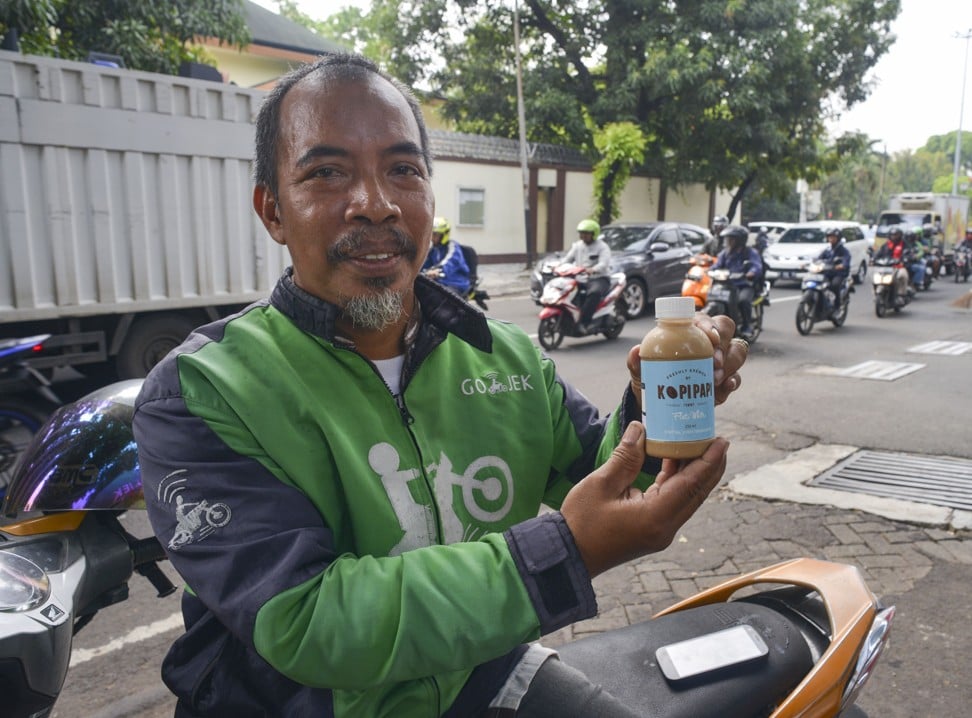
Although supermarket sales are still the largest moneymaker for Kopi Papi Tommy, Octaviana thinks it is only a matter of time before delivery sales overtake them. “We feel that up until now it has been important for customers to see and feel the products, so product display has been crucial for us, [but] with online delivery expanding, we feel that in the future it will be the market leader.”
How Hong Kong’s coffee culture became a script for social snobbery
For any small-business owner in Jakarta, understanding trends is essential to long-term success. What often happens, though, is that restaurants, bars and food products are launched, become the subject of frenzy, and are then abandoned – all within months.
“We are planning to do research on what specifically triggers customers to buy into online delivery services,” Octaviana says. “Is it the product itself or is it only a trend which won’t last long?”
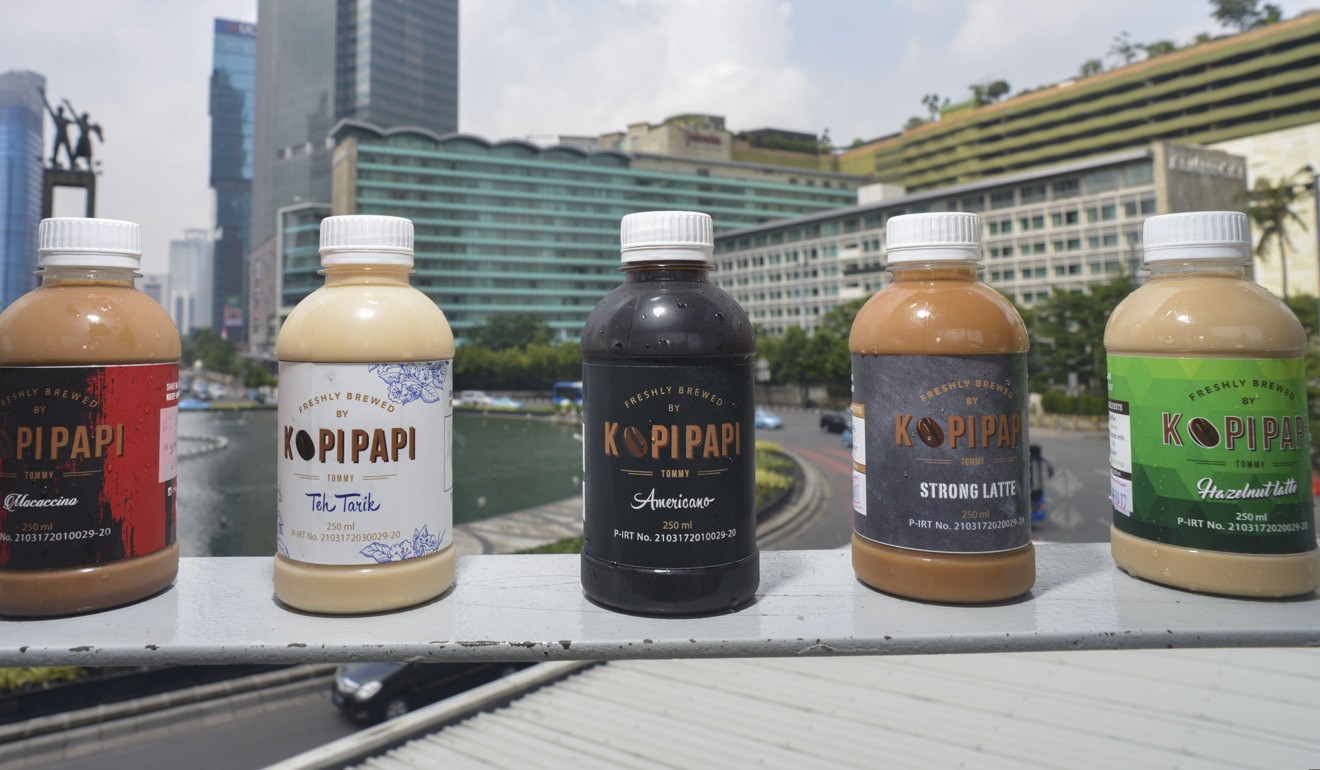
As in many major cities around the world, US coffee giant Starbucks reigns supreme in Jakarta. Since launching in the city in 2002, the chain has expanded to 22 Indonesian cities. With free Wi-fi and lax enforcement of how long customers can stay after finishing their drinks, the outlets are constantly buzzing.
“At Starbucks, we create a third place between work and home, and customers in Jakarta often use our stores as a place for meetings and remote working, especially on weekdays,” a Starbucks spokesman says. “The comfortable store environment and free Wi-fi service make it a haven for customers to relax in.”
This “third place” model may be the key to success in Jakarta’s growing coffee scene. As the city’s already notorious traffic jams worsen, and urban sprawl forces young families further out to the city limits, the “third place” is a low-cost alternative to spending hours each day commuting, or staying behind at the office or school.
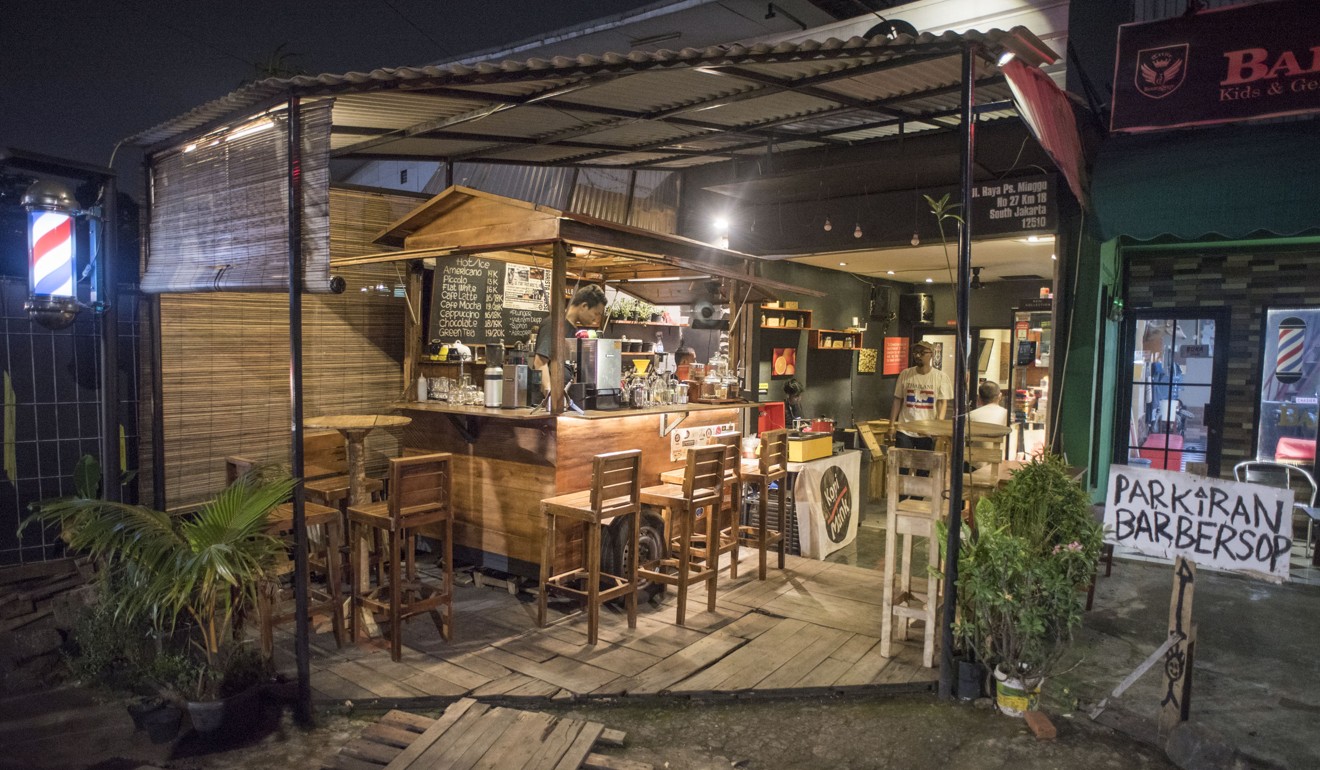
Producers, too, are benefiting from a surge of interest in Indonesian beans. According to online news portal Indonesia Investments, figures from the Indonesian Coffee Exporters Association (GAEKI) predict that output will increase 10 per cent this year to between 650,000 to 700,000 tonnes. Most of this will come from the “golden triangle” of growers in Sumatra which, spread across the provinces of Lampung, South Sumatra and Bengkulu, accounts for almost 65 per cent of the country’s total coffee output.
GAEKI chairman Hutama Sugandhi said production was likely to continue to bounce back after a dismal haul in 2015, when production dropped to 600,000 tonnes due to effects from the El Nino weather phenomenon.
Drinking coffee can cause stronger sugar cravings because caffeine dulls perception of sweetness, report finds
While the Indonesian government has set a revised production target of 637,539 tonnes for 2017 – down on its 2016 target – growth in Jakarta’s coffee scene may be harder to estimate. But if Kopi Mank’s enthusiasm for expansion is any indication, with plans including launching a roasting arm of the business and a second cafe targeting young entrepreneurs, Jakarta may soon be up there with the great coffee capitals of the world.
